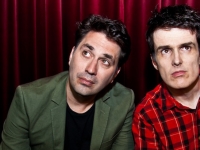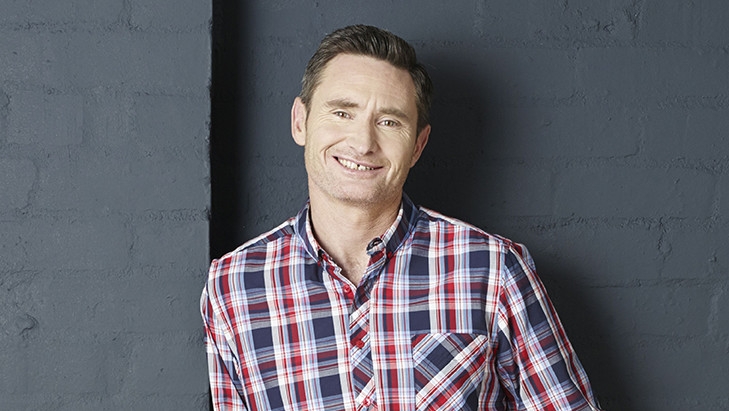Few comedians challenge authority figures and institutions to the point of being listed on security lists, but Andrew Hansen, Chris Taylor and the Chaser team are among those few. In 2007, the Chaser team were listed as a threat to then US Vice President Dick Cheney. “It’s funny that we went through a period where they regarded comedians as some kind of security risk,” says Hansen, as we chat over a morning coffee. “Everything we’ve ever done is completely harmless, but I think as a result of a lot of media beat-ups, we were seen as dangerous in some way. So if we turned up to an event, everybody would panic as if disaster was going to ensue.”
After working on numerous TV shows, radio programs and publications with The Chaser, Hansen and Taylor are making their Melbourne International Comedy Festival debut with In Conversation with Lionel Corn. Their comedy festival show will be a send-up of Q&A events at film festival sessions/nerd conventions, which typically involve the cast of Star Wars or Doctor Who or a big name director, actor or chief writer being interviewed on stage and then asked ridiculous questions by the audience. Hansen describes Lionel Corn as “a hybrid of every celebrity that’s ever done these kind of interviews. He’s part Stephen Fry and he’s part Paul McCartney and he’s part George R. R. Martin. He enables us to make fun of a lot of different areas of the entertainment industry.”
The Chaser’s War On Everything pushed boundaries, earned awards, gained a cult following, and led to international broadcasts and a few arrests. Did they achieve what they set out to do with that show? “I was reasonably happy with it,” Hansen ponders. “I think it was patchy like most comedy shows because we were trying out a lot of new stuff. It was a quirky, experimental and dark show, which normally wouldn’t have gotten the kind of ratings that it got, and I think it ended up being a problem for the show because a whole lot of people were watching it who it really wasn’t for and who didn’t really know what to make of it and ended up getting offended a lot of the time. It should’ve just been a niche show.
“I’m not interested in appealing to a broad audience,” says Hansen. “I personally don’t like most shows that have mass appeal as a viewer, so the shows that I want to make are generally pretty quirky and strange because that’s just what turns my dial up. The kind of comedy that I’m really into, personally, is more wacky stuff – characters and silly stories. I’m much more excited by Curb Your Enthusiasm or Monty Python or The Goodies than I am by The Daily Show or John Oliver’s show. I don’t dislike those shows, but they’re not what I’m hungry to watch.”
Hansen believes it’s important to have the freedom to use comedy and satire to critique political and social issues. “We should be able to make jokes about authority figures and institutions,” he affirms. “Freedom has been such a grey area – who knows what we’re allowed to say, but I do wish people got less offended about jokes. I think it’s a sad day which we’ve reached where comedy writers, like myself, are actually nervous about saying anything at all. But at the same time, I don’t think you should deliberately set out to offend religious people just because you want to – I think that’s a bad thing. Even if you’re not religious yourself or even if you think that religion is silly or whatever, so what? Some people hold all those notions very dear.”
BY CHRISTINE LAN

